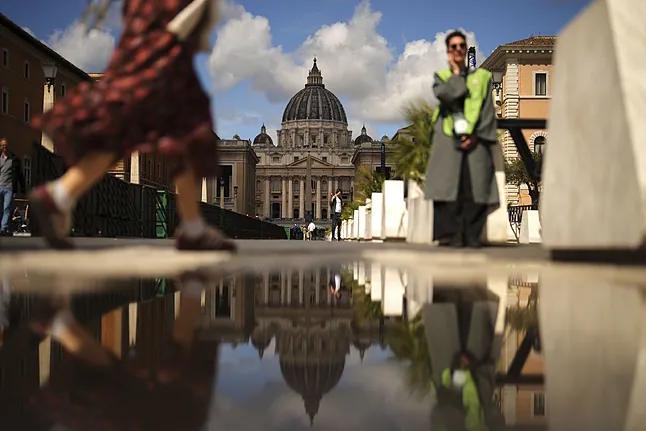When global attention wanes and St. Peter's Square regains its rhythm, the new Pope, León XIV, will find himself leading a Church in a turbulent era. The challenges he will face during his Pontificate will remain the same as those of Francis, but they will be more pronounced, and undoubtedly new ones will arise.
Catholicism has been losing ground, especially in Europe and North America, and among young people growing up in increasingly secular societies. This disaffection is evident in the decline in sacraments, priestly vocations, or the closure of parishes. One of the new Pope's challenges will therefore be to fish in new waters, such as in Asia or Africa, where Catholicism is on the rise.
Also, seeking ways to reach out to the new generations and maintain the positive reception that the Pontificate of Francis has enjoyed among teenagers. Digital evangelization can be a powerful tool to reach new audiences if social networks, podcasts, streaming platforms, and even Artificial Intelligence are used effectively, despite Francis' initial skepticism towards it.
It is said that the Church lacks ideology and does not engage in politics. However, the world's smallest state exerts enormous global influence as the Pope is both the head of state and the religious leader of 1.4 billion believers. Not only does he have moral authority, but he also possesses one of the world's broadest diplomatic networks, with relations with 180 countries, through which he often engages in silent diplomacy in international conflicts. Examples of this are the relations between Cuba and the United States or the FARC with Colombia. At the UN, the Pope has permanent observer status and influences the defense of human rights related to human dignity or poverty. Francis himself has openly opposed the migration policies of some countries, leading to diplomatic tensions.
The new Pope will inherit Francis' challenges: wars, climate change, and migration will remain on the agenda. Strengthening interreligious dialogue will also be one of his geostrategic interests. However, these points will only be accentuated, as when Francis was chosen, Russia had not yet invaded Ukraine, the Conflict in the Middle East had not erupted, Donald Trump was not in the White House, and the challenges of AI were not as they are now.
Perhaps one of the most crucial tasks for Francis' successor will be to maintain or strengthen the unity of the Church. In an increasingly polarized world, the currents within the Curia are also accentuated and could lead to an internal crisis. Francis set an open line and ensured continuity by choosing 80% of the cardinal electors of the conclave, yet not everyone shares his vision and some advocate for a more conservative approach.
The new Pope must address the different sensitivities to send a signal of unity in the Church. One of the most contentious issues is the division among bishops in the United States over Trump's policies. A visit to León XIV's home country could help calm the waters.
Is there a risk of regression with the arrival of the new Pope? Francis' Pontificate will be remembered for initiating reforms on issues that generate strong tensions within the Church. Celibacy, the participation of the LGBT community, divorced marriages, or greater representation of women were topics discussed in the congregations prior to the conclave that elected him in 2013, so the new Pope will have the challenge of continuing to promote these reforms if he chooses continuity.
Twelve years ago, Francis inherited a Church plagued by sexual scandals and abuses of minors uncovered during Benedict XVI's era. While during his Pontificate he sought to change the paradigm and put the victim at the center against the prevailing protectionism, it is not expected that scandals will decrease. On the contrary, they may increase. The successor to the Argentine Pope will be closely scrutinized if he was aware of any cases and chose to conceal them.
If the Pope decides to follow the path opened by Francis, it is expected that he will establish mechanisms for accountability, offer real support and reparation to the victims, review and eradicate the culture of impunity, and continue investigating in regions like Africa and Latin America.
Transparency will be another of the new/old challenges. Francis tried to reorganize the finances of the Holy See by increasing controls, subjecting them to external audits, and removing cardinals for financial crimes, such as Cardinal Angelo Becciu, who withdrew from the conclave after being convicted in 2022.
However, the incoming Pope will need to have managerial skills. In 2022, the Vatican's budget was in the red, and the pension fund had a deficit of over $700 million. There is an urgent need for greater alignment with international governance and transparency standards, as well as continuing to promote lay participation of professionals in key governance sectors.
